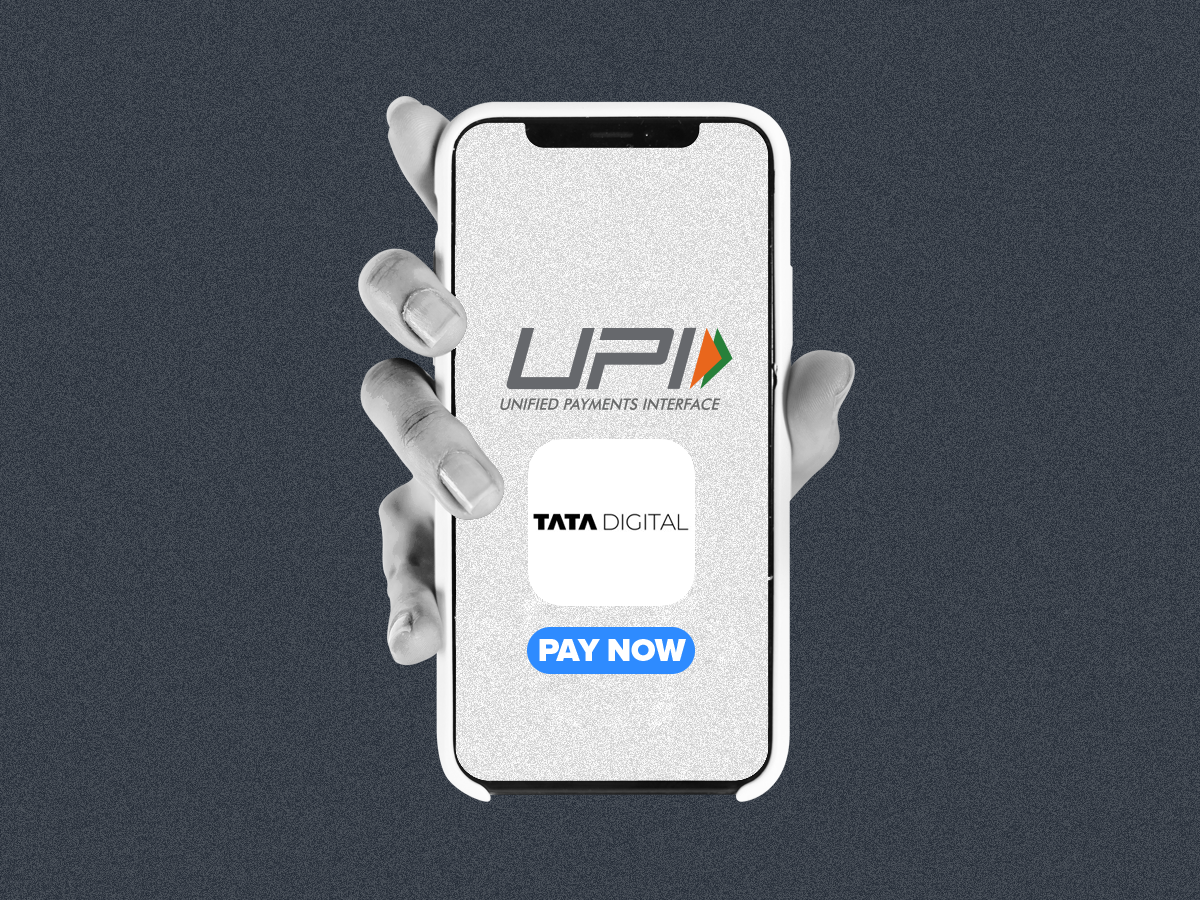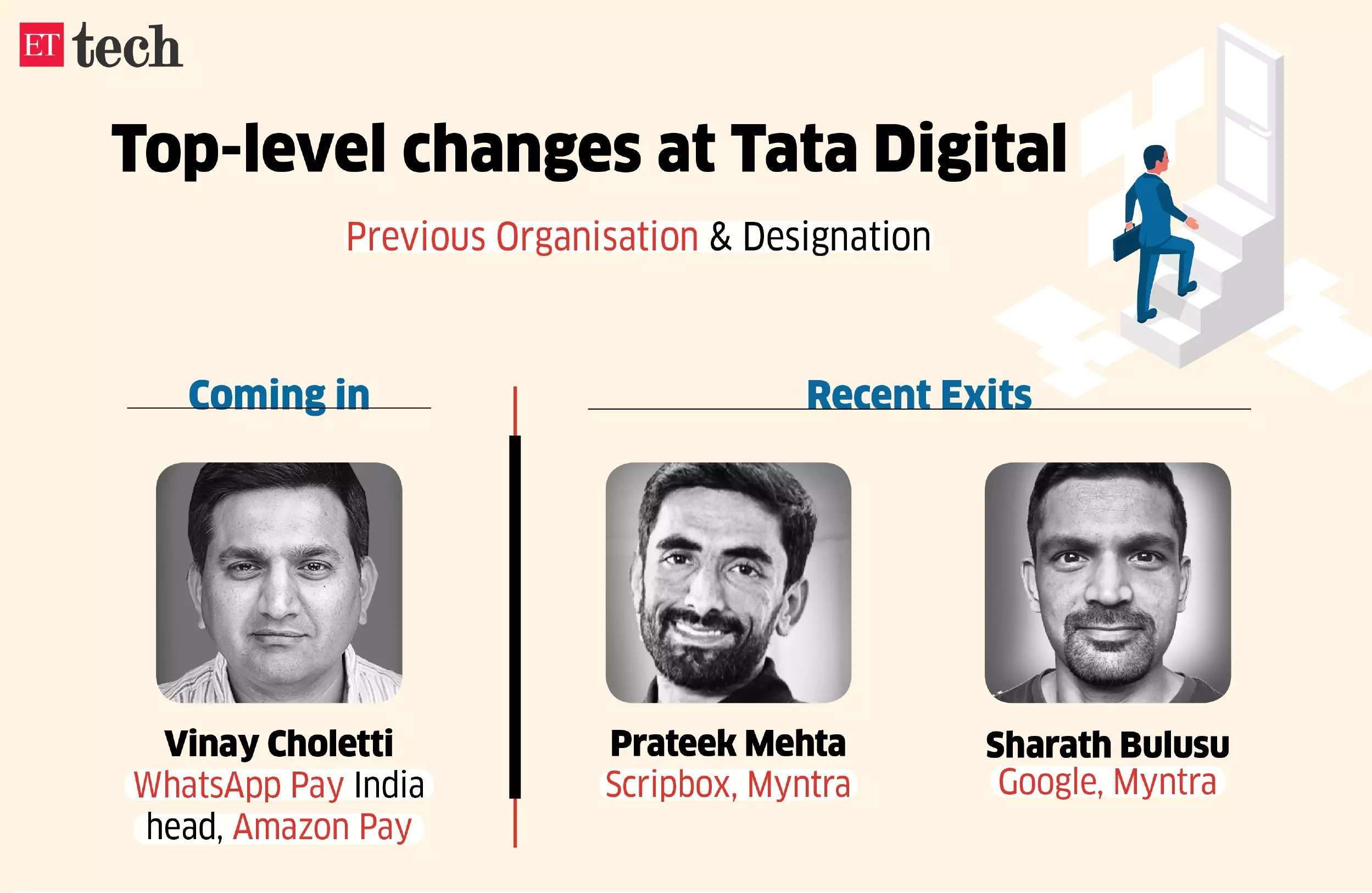Ex-WhatsApp Pay India head may join Tata Digital; house panel flags Big Tech’s ad monopoly

Also in this letter:
■ House panel finds Big Tech’s ad business a ‘monopolistic threat’
■ Google bets on strong ad revenue growth in India
■ Ola Electric to launch commercial vehicles soon
Ex-WhatsApp Pay India head may join Tata Digital

Vinay Choletti, the former head of WhatsApp Pay in India who quit Meta within four months of taking over the role, is in advanced talks to join Tata Digital in its payments business, multiple sources told us.
Tata Digital, which houses the ambitious ecommerce super app Neu, has been trying to build its unified payments interface (UPI) play and sell its financial services offerings from the group to consumers.
Background: Choletti, a former Amazon Pay executive, was working closely on WhatsApp Pay in India and was given the mandate to head it after Manesh Mahatme quit the position to go back to Amazon. Cholleti spent around 15 months at WhatsApp Pay, where he was head of merchant payments before being elevated to head of WhatsApp Pay.
Exits: Meanwhile, Tata Digital has seen at least two senior executives leave. Both Sharath Bulusu and Prateek Mehta were hired by Tata Digital president Mukesh Bansal and are leaving the ecommerce arm of the Tata group after spending less than a year there.
They were part of the team being built by Bansal, as we reported in April.

Bulusu, a former Myntra executive, has gone back to Google, while Mehta has joined AngelOne. These exits come following the first senior-level departure at Tata Digital in July, when its founding member and CTO Sauvik Banerjjee decided to move on.
Choletti is expected to report to Harveer Singh, the CBO for Tata group’s rewards programme NeuPass and Tata Payments.
House panel finds Big Tech’s ad business a ‘monopolistic threat’

A parliamentary panel called Big Tech’s ad business “a monopolist threat” and asked the government to act early and head off anti-competitive behaviour in digital markets. It also suggested digital competition legislation to ensure a fair, transparent and contestable ecosystem in the country.
Driving the news: Big Tech’s ad business is a “monopolist threat as it owns every step in a system that connects ad sellers and buyers and gives the Big Tech companies an unfair edge over the market,” the standing committee on finance said in its report, Anti-Competitive Practices by Big Tech Companies, which was introduced in parliament on Thursday.
Pointing out that leaders tend to emerge quickly in digital markets, the committee said “competition behaviour needs to be evaluated ex ante before markets end up monopolised instead of the ex post evaluation being carried out at present,” proposing a framework for systemically important digital intermediaries (SIDIs).
Suggestions: The standing committee on finance suggested identifying and regulating leading players or market winners that can negatively influence competition in the digital ecosystem and recommended evaluation of competitive behaviour to ensure fair markets.
The 70-page report presented in parliament on Thursday called for enhanced competition law and the strengthening of the Competition Commission of India (CCI) with a specialised digital markets unit to restrain anti-competitive behaviour in digital markets.
Google bets on strong ad revenue growth in India

Google’s India advertisement revenue is likely to continue to see strong growth, country head Sanjay Gupta said, underlining the US search giant’s optimism for the South Asian market even as globally the company, along with major online intermediaries, is seeing a slowdown on that key metric.
Quote: “I think India will explode in terms of revenues because the ad-to-GDP (gross domestic product) ratio in India is still very low. It’s 0.4%,” Gupta told us. “Globally, it goes up 0.6 to 1%. So, I think it (India ad revenue) is in a growth phase. I think if we deliver to our customers, hopefully our revenue should also grow as the advertisement expenditure grows in this country.”
Google India has tailored its advertisement offerings in such a way that it is able to serve both small and big customers, which has served well in increasing ad sales in the country, the senior executive said.
By the numbers: For the financial year 2021-22, Google India posted revenue of Rs 24,926.5 crore, a jump of nearly 80% from the previous year. Competitor Facebook India’s online services had clocked gross ad revenue of Rs 16,189 crore, up 74% on-year during the same period.
Ola Electric to launch commercial vehicles soon

Electric vehicle (EV) maker Ola Electric will also manufacture commercial vehicles along with two-wheelers and cars, co-founder Bhavish Aggarwal said.
Quote: “…motorbikes, scooters, small and light vehicles have all been of interest to us and over the next 12 months you will hear a lot more announcements on these products,” Aggarwal said in a press conference on Thursday.
He said products will be launched at a higher frequency since the company had established its core technology.
Aggarwal said the company will soon start generating profits from its two-wheeler business and it will reinvest them into these new products.
The company, he added, is the most capital efficient among competitors, especially because it does not run on a dealership model.
Tweet of the day
Karnataka policy targets 10,000 new startups in five years

The Karnataka Cabinet on Thursday approved a new startup policy aimed at adding about 10,000 more startups over the next five years.
Details: The broad goal was to stimulate the growth of about 25,000 startups over five years with a special focus on multiplying the number of high-growth ones. Karnataka is currently home to about 15,000 startups, IT/BT Minister CN Ashwath Narayan said.
The policy aimed to cement Karnataka’s position as the ‘champion state’ in the startup space and nurture them throughout their business lifecycle and make the state a global innovation hub, he added.
The policy has provided for a Rs 100 crore venture capital fund to support emerging innovative and deep tech startups in AI, ML, EVs, medtech, robotics, drones, and other disruptive technologies.
Other Top Stories By Our Reporters

PhysicsWallah forays into upskilling with iNeuron acquisition: Edtech startup PhysicsWallah is set to make its fourth acquisition in a 100% purchase of iNeuron.ai, thereby officiating its entry into the upskilling market that also includes other unicorns UpGrad, Emeritus and Byju’s (Great Learning).
India handset shipments may get hurt if Covid waves persist: Smartphone brands in India may face a supply crunch for components from the middle of next month if the current surge in Covid cases continues in China, said market trackers.
Global Picks We Are Reading
■ The year the NFT died and came back to life (Wired)
■ The end of Netflix password sharing is nigh (WSJ)
■ Don’t be scared of ChatGPT, the latest AI chat fad (Rest of World)
For all the latest Technology News Click Here
For the latest news and updates, follow us on Google News.

